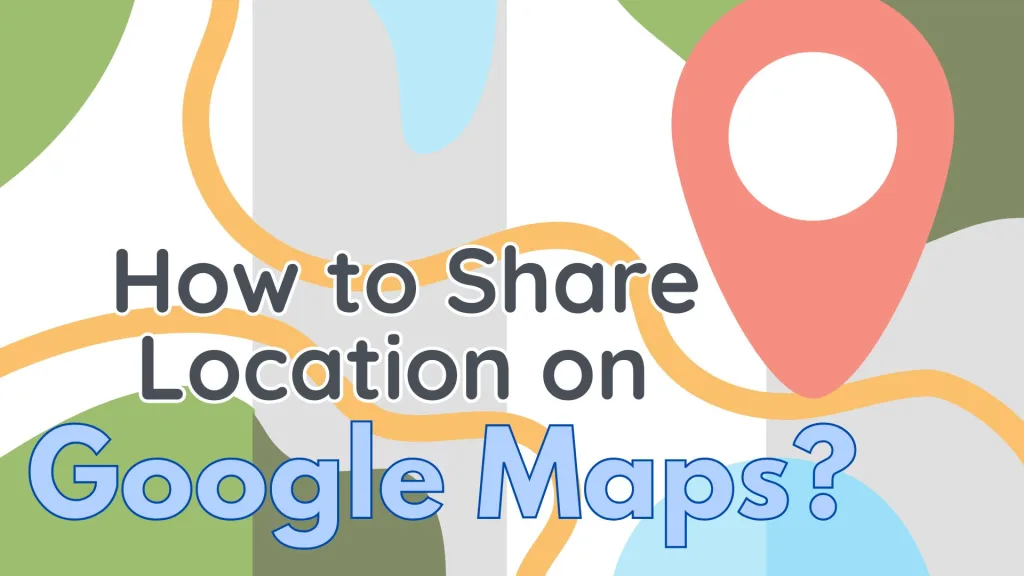Waze vs MapQuest – Which is more accurate?
Waze vs MapQuest, both of these app are popular navigation apps. These apps offer turn-by-turn directions, real-time traffic updates, and route planning.
Both apps have some similarities such as voice-guided navigation and search functions which provides a good travel experience. However, both of these apps also differ in some features. Waze provides community-driven information and real-time updates. It offers a high-quality and customizable experience.
In contrast, MapQuest provides a more traditional navigation interface along with the facility of offline maps. It is useful for areas with limited connectivity. If you want to choose between the two, depends on your specific needs, such as the importance of real-time updates instead of offline access.
Real-World Accuracy: Is Waze or MapQuest More Reliable?
While both Waze and MapQuest offer turn-by-turn navigation and essential travel features, their core mapping technology and routing logic differ significantly. On Waze’s official forums, several experienced users noted that MapQuest tends to offer more accurate map routes, especially in rural or suburban areas. One driver commented:
“MapQuest US maps are significantly more accurate than Waze… Waze often takes strange shortcuts or routes that don’t exist anymore.” (Waze Forum)
This is because MapQuest sources its maps from professional cartographic databases and licensed providers, giving it an edge in accuracy. Waze, on the other hand, depends heavily on real-time user reports, which can lead to inconsistencies in lesser-used areas.
What are the similarities Between Waze vs MapQuest?
Both Waze vs. MapQuest are widely used navigation apps that have several similarities which are given below:
Turn-by-turn Navigation:
Waze vs. MapQuest both provide accurate turn-by-turn navigation. Both apps guide users about their routes with voice and visual directions. This feature helps drivers stay on the correct route and avoid missing any turns.

Traffic Information:
Both apps offer real-time traffic information. Waze depends on user-generated data to provide updates on traffic conditions, accidents, road closures, and police presence. While MapQuest uses data from various sources to inform users of traffic jams, road incidents.
Route planning:
Waze vs. MapQuest allows users to plan a route before starting their journey. They both offer multiple route options based on current traffic conditions, enabling users to choose the fastest or most convenient path.

Voice Guidance:
Both apps support voice-guided navigation, which allows drivers to keep their eyes on the road. Waze vs. MapQuest both offer customizable voices for directions, enhancing the user experience.
Search Functions:
Waze vs. MapQuest has wide search functions that allow users to find addresses, businesses, landmarks, and other points of interest. They also support searching by categories like gas stations, restaurants, and parking.
What are the differences Between Waze vs MapQuest?
While Waze vs. MapQuest shares many similarities, they also differ in different ways, which can influence which are:
Community-driven Data:
Waze relies highly on its community of users who provides real-time data about traffic, hazards, and road conditions. The crowdsourced information of Waze allows provide each update. On the other hand, MapQuest does not depend on user contributions for real-time data, do not provide speed alerts, road delays. It depends on more traditional data sources like traffic reports and mapping services.
Interface and Usability:
Waze features a more modern interface with a best design, including features like avatars and colorful icons, user feedback on map. MapQuest has a more traditional interface that provide users who prefer simplicity and familiarity.
Ads:
Waze includes advertisements, which are displayed on the screen, when the vehicle is stopped. These ads are for nearby businesses. MapQuest also displays ads, but they are less as compared to Waze.
Offline Maps:
MapQuest allows users to download maps for offline use, which can be a critical feature when traveling through areas with limited or no internet connectivity. However, there is not extensive Waze’s offline maps, which means it requires an internet connection for real-time updates and navigation.
Integration with Other Services:
Waze integrates with various third-party services such as Spotify for music, allowing users to control their music within the app. MapQuest does not offer such integrations but include features like gas price comparison and hotel bookings within the app.
Customizability and Alerts:
Waze offers a higher level of customizability, allowing users to choose different voices for navigation, customize routes based on their preferences, and receive alerts for specific types of hazards. MapQuest provides standard alerts but lacks the same degree of customization.

Battery Drain & Data Consumption – Which is Lighter?
One crucial difference often overlooked is how much data and battery each app consumes. Waze, due to its constant connection to GPS, cloud routing, and user reports, tends to drain battery faster and consume more mobile data. For example, a typical 30-minute trip may use 0.2–0.3 MB of data and 5–7% battery on mid-range devices.
In contrast, MapQuest offers offline map downloads, which allow you to navigate without using mobile data at all. This is not only efficient but can also help extend battery life during long road trips or when using power-saving modes.
Traffic Reporting – Instant Crowdsourcing vs. Established Providers
Waze excels in real-time traffic reporting due to its vast community of users constantly updating road conditions, hazards, and police sightings. This crowd-powered intelligence allows Waze to provide lightning-fast alerts, which is ideal for daily commuters in busy cities.
MapQuest, in contrast, aggregates traffic data from licensed providers like INRIX, offering a more consistent but slightly delayed traffic feed. This makes MapQuest suitable for users who prefer stable, verified sources rather than unpredictable user inputs.
💡 Reader Tip: For fast alerts in real time, Waze is your best bet. But for broader consistency on major routes, MapQuest’s approach is more dependable.
Which app is better for you? Waze vs MapQuest
You can choose between Waze and MapQuest, but it depends on your specific needs and preferences:
Choose Waze if:
- You want real-time, community-driven traffic updates.
- You enjoy a more customizable navigation experience.
- You drive in urban areas where traffic and road conditions change rapidly.
Choose MapQuest if:
- You need offline maps for areas with limited connectivity.
- You prefer a simpler, more traditional navigation interface.
- You want additional features like gas price comparison and hotel bookings.
- You dislike ads and prefer a less heavy experience.
In my opinion, if you want to drive smoothly in congested areas and need fast updates, Waze tends to be the better choice. However, those who often travel to different locations, or need offline access., MapQuest can be better.
Specifications Comparison Table:
Here, I have provided a comparison table for the specifications of both apps, Download Waze and check the specifications too:
Update your comparison table to include more user-centered insights and keywords.
| Feature | Waze | MapQuest |
|---|---|---|
| Primary Focus | Community-driven, real-time navigation | Traditional routing with stable accuracy |
| Traffic Updates | Real-time, crowdsourced | Consistent but slower via providers |
| Offline Mode | Minimal (cached only) | Full map downloads supported |
| Map Accuracy | High in cities, lower in remote areas | High in all areas, especially rural |
| Battery Usage | Higher (live data streaming) | Lower with offline mode |
| Data Usage | Moderate to high | Minimal if offline maps are used |
| Community Reports | Yes – highly active | No real-time community input |
| Interface Style | Dynamic, colorful, busy | Clean, simple, intuitive |
| Voice Navigation | Yes – with custom voices | Yes – with standard voice |
| Best For | City commutes, traffic, fast updates | Rural drives, offline travel, stable routing |
Best Navigation App by Region or Use Case
Another way to compare Waze and MapQuest is by looking at where and how they’re most effective. Waze is particularly strong in countries and regions where community usage is high—like the United States, Canada, UK, and parts of Western Europe. In these places, constant real-time updates make Waze unbeatable for navigating through dense traffic.
MapQuest shines in rural, offline, or low-signal environments, thanks to its ability to preload maps and function without real-time connectivity. It’s also reliable for international travel, where mobile data might be limited or costly.
💬 User Insight: A common consensus among drivers is, “Use Waze for urban, real-time driving—use MapQuest for long-distance, offline navigation.”
You May Also Like
FAQs
Q. Is Waze the most accurate?
All the navigational app provide traffic updates and show routs on map, but Waze provides more accurate and advance guide regarding your route.
Q. What is the most accurate app or direction?
The best apps that provide a best route information and directions are Google Maps and Waze.
Q. Which app has the best navigation voice?
If you want to choose between Waze and MapQuest for voice navigation, so Waze provides more smooth voice navigation.

John
Navigational Apps Expert
With years of hands-on experience in the world of navigation technology, John is the go-to expert for everything related to travel apps. His deep knowledge of platforms like Google Maps, Waze, and cutting-edge GPS tools ensures that our users always have the most efficient and up-to-date routes, wherever they are headed.
John’s passion for travel and tech shines through in every guide he creates, helping travelers navigate new destinations with ease. Whether it’s optimizing your route, avoiding traffic, or discovering the best local spots, John’s expertise keeps your journey smooth and stress-free.






